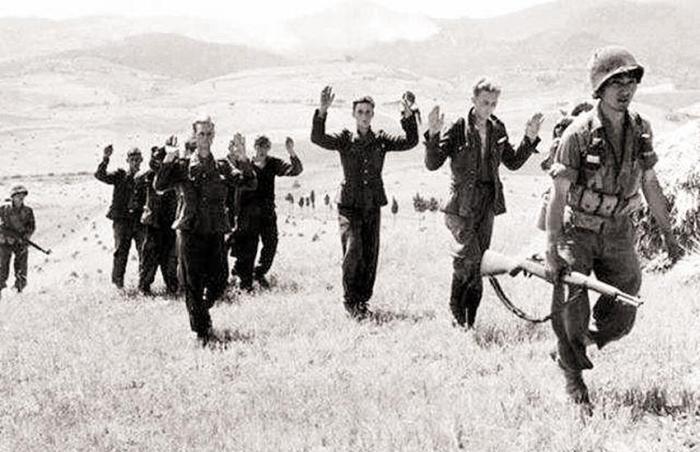There are countless wars experienced in human history, from ancient times to the present, from cold weapons to hot weapons, people's attitude towards war has always been the same, that is, leaders decide war, but soldiers are very disgusted with war.

Whether in the ancient battlefield or in the modern battlefield, there will inevitably be prisoners of war, and if there is a war, there will be victory or defeat, and if there is a victory or defeat, there will be a prisoner of war. With regard to prisoners of war, there is a strange phenomenon that no matter what the victorious side does to the prisoners of war, the prisoners of war will not resist much. We will tell us today the story of prisoners of war.
First of all, two ancient examples, Bai Qi, after winning the Battle of Changping, ordered the pit to kill 400,000 Zhao soldiers. The four hundred thousand soldiers were killed and buried in a short period of time or buried alive. King Chu also slaughtered a large number of Surrendered Soldiers of Qin. This vice of slaughtering captives has continued for almost a thousand years. More recently, Xu Da of the Ming Dynasty and Nurhaci of the Qing Dynasty were typical representatives of the slaughter of prisoners.
In modern times, during World War II, a large number of Jews were slaughtered by Nazi Germany, and these people were not lacking in civilians or prisoners of war. So in the face of the brutal repression of the war machine, why did these prisoners not choose to resist, but chose to be slaughtered? The author has analyzed three reasons here, for your reference only.
First, the prisoners on the battlefield were generally relatively weak soldiers. Experienced veterans are not easily captured unless the leader makes a big strategic planning mistake. Under normal circumstances, the captives are soldiers who are lagging behind, and since this part of the soldiers can be captured on the battlefield, it is very likely that they will not have the ability to organize resistance and escape. These people often suffer the tragic fate of being killed, assassinated or strafed by machine guns.
Second, many PRISONERS had no idea they would be killed until they were killed. Large-scale PRISONERs of war would not be executed all at once, and the bodies would be difficult to dispose of. The victorious side will often choose to dispose of prisoners of war in batches, which can prevent a large number of prisoners of war from rioting together and facilitate the disposal of a large number of corpses. In this case, a small group of prisoners walked out of the prisoner-of-war camp, not knowing what was going on, and before they knew that they were about to die, they had already been shot.
Third, prisoners of war knew that resistance was useless. Although sometimes, the number of soldiers in custody of prisoners of war is less than the number of prisoners of war. But in a prisoner-of-war camp, it was easy to see that the soldiers were equipped with light and heavy firepower, and these guns were easily used to kill prisoners who wanted to escape. If the captives choose to stay well without resisting, they may encounter the end of the war and be repatriated. But once you resist, you must be dead, beaten into a sieve.
Fourth, the PRISONERS had a herd mentality. That is, if everyone does not run away or resist, they will not run away. No one wants to be an organizer, or a bird. The first person who chooses to rebel, once the matter is revealed, will definitely die. Even if they are not exposed, they are likely to be the first to be executed after being discovered. Therefore, under the influence of this herd mentality, it is best to choose to stay obediently. Even if he is executed, he will not move.
The fifth reason is the fear and despair that war brings to oneself. Many people who have experienced war know that war can drag down a person's mind, and even if you are determined, you will be destroyed by the war machine. Most of the soldiers captured on the battlefield either had no faith or their beliefs were completely destroyed. These people have forgotten what resistance is.